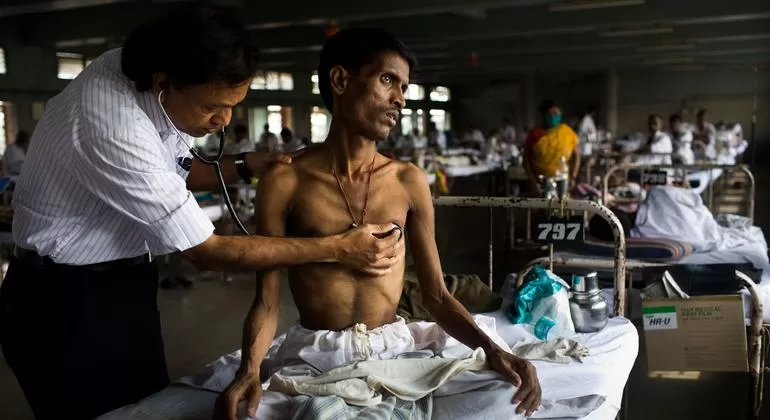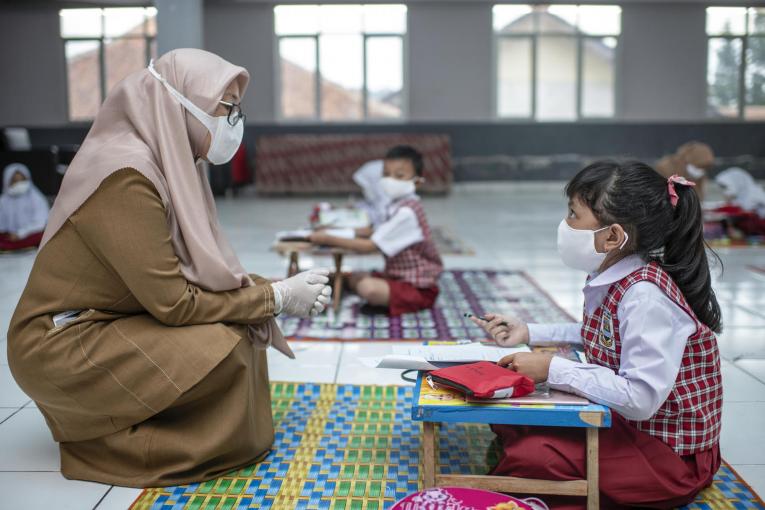
The parliamentary committee has expressed reservations about the Ni-kshay adoption model being the primary strategy for eradicating TB by 2025. In their 149th report presented in Parliament, the Department-related Parliamentary Standing Committee on Health and Family Welfare voiced concerns about a perceived “complacency” within the ministry and the government body responsible for executing the TB elimination program.
The report cautioned against transferring responsibilities to non-governmental organizations, as this could potentially hinder overall progress in TB eradication. The committee recommended that the government establish a rigorous selection process for Ni-kshay Mitra and implement effective monitoring mechanisms to ensure their diligent performance of responsibilities.
Under the Pradhan Mantri TB Mukt Bharat Abhiyan, implemented by the Health Ministry, TB patients receive community support through the Ni-kshay 2.0 portal, where they can be adopted and cared for by individuals, elected representatives, or institutions. The committee suggested the need for orientation programs for Ni-kshay Mitras to educate them about TB and its management.
The committee emphasized the crucial link between nutrition and TB, highlighting how this program not only strengthens the immune system of TB patients but also promotes community engagement, making the TB elimination program an integral part of community-driven efforts.
To ensure the proper utilization of assistance provided by Ni-kshay Mitras, the committee recommended the introduction of a monitoring mechanism to track the patients’ attitude and behavior towards the Ni-kshay Mitras and to provide appropriate counseling if needed.
The committee stressed that global resources and guidelines would enhance the implementation of the PMTBMBA and the achievement of universal health coverage. Additionally, community involvement in TB control efforts, along with awareness-building, understanding of TB prevention, care-seeking behavior, and adherence to treatment, were deemed crucial steps in managing TB.
The committee urged for political commitment at all levels of governance under the PMTBMBA program through regular meetings, discussions, and engagements with key stakeholders. It also emphasized the need to strengthen the health system’s capacity and investment in research collaborations for the advancement of new diagnostics, drugs, and vaccines.
Furthermore, the panel recommended conducting a survey on the financial impact of TB in India to assess the socio-economic status and financial burden of TB disease on families. This could be integrated with other national health surveys to evaluate the catastrophic costs associated with TB.
In response to the rising cases of drug-resistant TB, the committee proposed decentralizing healthcare delivery of DR-TB and MDR-TB services to ensure easy access to rapid molecular diagnostics, even in remote areas or for high-risk patients across the country. They advocated for an integrated health system approach for early diagnosis and timely initiation of treatment, including counseling within the general health system.
The panel also stressed the need for a robust and dedicated surveillance system for drug-resistant TB cases to monitor patient adherence to prescribed treatment. India remains a major contributor to global TB incidence, accounting for approximately one-fourth of all reported cases, or roughly 25 lakh out of 1.05 crore cases.
According to the WHO Global TB Report 2022, eight out of the 30 countries with the highest TB burden collectively account for over two-thirds of global TB cases, with India’s share being 28 percent.
The committee noted that in India, TB is more commonly observed in the 15-24 and 25-34 age groups over the last five years. Given the increasing prevalence of lifestyle-related non-communicable diseases, poor health behaviors, and unhealthy lifestyles, individuals are more susceptible to TB infections due to lower immunity.
The committee emphasized the importance of the health of the young population in the nation’s overall well-being and called for a comprehensive population-based approach to address their socio-economic conditions, promote healthy lifestyles, and implement preventive strategies as part of the holistic TB elimination effort.











